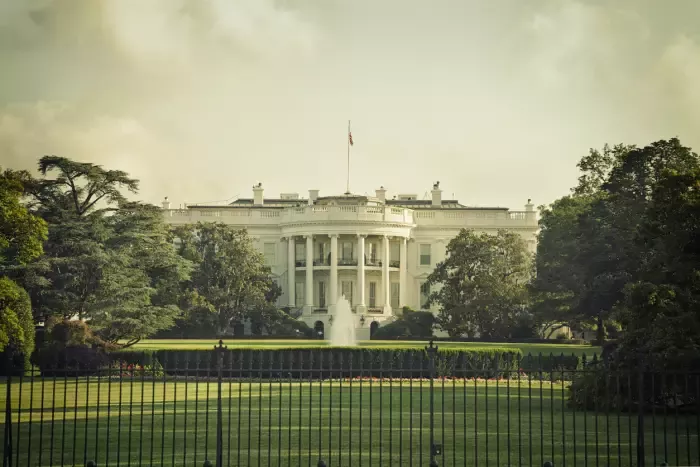Veterans Advantage Supports New Bill to Treat Veterans with PTSD, TBI and Silent Injuries of War

Driven by a national obligation to accelerate focus on medical care for military veterans, bipartisan support has emerged in the U.S. Senate for ground-breaking mental health treatments, and Veterans Advantage has joined in supporting the new legislation.
U.S. Senators Gary Peters (D-MI) and David Perdue (R-GA) recently introduced the No Heroes Left Untreated Act, Senate legislation that would create a pilot program for innovative medical care for veterans to help treat post-traumatic stress disorder (PTSD), traumatic brain injury (TBI) and the burgeoning ‘silent injuries’ of modern warfare. Senator Purdue’s press announcement noted Veterans Advantage’s support of the legislation, along with U.S Special Operations Command, Vietnam Veterans of America, Blue Star Families, American Legion Post 281, among others.
According to the joint introduction of the legislation by Peters and Perdue, the No Hero Left Untreated Act would create a pilot program at two medical centers within the VA network and enroll up to 50 veterans in Magnetic EEG/ECG-Guided Resonance Therapy for a one-year period. Magnetic E-Resonance Therapy is an individualized non-pharmaceutical, non-invasive neuromodulation procedure that applies magnetic stimulation to help facilitate restoration of proper brain function. In clinical trials, over 400 veterans have reported a marked improvement in symptoms associated with PTSD, traumatic brain injury, military sexual trauma, chronic pain, and opiate addiction. About 91 percent saw some improvements, and 61 percent saw dramatic improvements.
“Through a member who has been enrolled in one of the clinical trials over the past year, we have the first-hand experience with this new treatment protocol,” said Veterans Advantage co-founder and CEO H. Scott Higgins, an Army Veteran who served in Vietnam. “Our member has seen significant improvement in his symptoms and overall sense of well-being.”
Higgins and his co-founder and COO, Lin Higgins, have traveled on numerous occasions to meet with the program’s treatment staff, researchers, and founders. “As a result, we are extremely optimistic about its ability to successfully address the multitude of health issues that our servicemen and women suffer from that are associated with PTS and TBI. Hopefully this newfound energy for this important veteran cause will result in having this bill signed into law by the Trump Administration, ushering in a new era of science and technology to support our veterans in their time of need as well as their family caregivers who are suffering alongside them,” Higgins said. “We wholeheartedly support this legislation and hope the Senate will pass it without delay,” he added.
The Senators’ bill is the companion to the House version of its No Heroes Left Untreated Act, which was passed thanks to California Republican Congressman Steve Knight, a U.S. Army veteran, and son of an Air Force veteran.
“I am grateful to Congressman Knight’s leadership, as the No Hero Left Untreated Act is exactly what our nation’s veterans need and deserve,” said Paul W. (Bud) Bucha, a Vietnam War Veteran, Congressional Medal of Honor Recipient, and a member of the Veterans Advantage Board of Advisors.
“Too many of our nation’s veterans continue to suffer from the invisible wounds of war. We can honor those who have served by making the right investments in innovative and proven medical treatments like magnetic eResonance therapy,” Bucha noted after the House passed Knight’s bill in late November.
Breaking the Downward Spiral
According to a report released by the Wall Street Journal, opioid painkiller prescriptions from the U.S. Department of Veterans Affairs soared after the wars in Iraq and Afghanistan.
“The effects of traumas, like PTSD, traumatic brain injury, military sexual trauma, chronic pain and opiate addiction weighs heavily on many of American’s veterans,” said Senator Peters.
Although it has begun to taper since 2013, mostly under the watch of outgoing Secretary of the VA Robert A. McDonald, providing healthcare alternatives to prevent fallout from subsequent addictions remains a must-solve priority for 2017.
“We owe it to the nation’s veterans to help them end their dependence on opioids,” said McDonald in a September speech, “and break the downward spiral that all too often ends in homelessness, prison or suicide.”
Legislative Background on the Senators
The bill reflects growing influence among veterans-turned legislators and leaders in Corporate America.
Senator Gary Peters, a former Lt. Commander in the U.S. Navy Reserve, serves on the Senate Armed Services Committee, as well as the Senate Commerce, Science, and Transportation Committee, the Homeland Security and Governmental Affairs Committee and the Joint Economic Committee.
Perdue, for his part, brings a results-driven perspective as the only Fortune 500 CEO in Congress. He has over 40 years of business experience as the former CEO of Reebok athletic brand and Dollar General stores.



